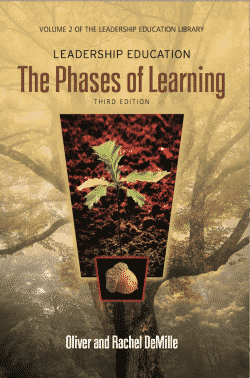Introduction:
 There were several questions in response to my recent article about using Weekly Interviews with your kids and students in Love of Learning Phase. In fact, these were really good questions, and I think they’ll be helpful for everyone. Here they are, with answers:
There were several questions in response to my recent article about using Weekly Interviews with your kids and students in Love of Learning Phase. In fact, these were really good questions, and I think they’ll be helpful for everyone. Here they are, with answers:
Q: “Are these interviews best done by mom or dad, or the parent who spends the most time helping the kids learn each week?”
A: Actually, we’ve done it several ways. The most frequent is for both dad and mom to conduct the interview, giving the child or youth a chance to download whatever he or she wants to both parents. Sometimes dad does it alone with the student, other times mom runs the interviews for the week. But mostly we’re both present.
We often do our “Blank Page Brainstorming” alone, for each child. Then we talk together about what we wrote down and what each child needs. We do these things before the actual interview. But we let the child or youth lead out as much as possible, adjusting our earlier thoughts and plans to the needs and feelings of the student.
But if the student isn’t sure, or doesn’t have a clear plan for the week, we bring up the things we already thought about. Often we bring up these plans in addition to what the child brings to the interview.
We’ve found that it’s okay to mix things up—sometimes an interview with both parents, sometimes with one, and other times with the other. This tends to bring better results than always doing the same thing.
Q: “Do you discuss life topics, friends, extracurricular activities, spiritual goals, etc.” in the weekly interviews?
A: Absolutely! In fact, these things are the bulk of the conversation. Academics are an important part of the Weekly Interview, but we nearly always emphasize personal development, goals, spiritual growth, and upcoming life events first. And we usually spend time on what people normally think of as “academics.”
 Q: “Do you only meet with those in Love of Learning Phase?”
Q: “Do you only meet with those in Love of Learning Phase?”
A: No. We hold Weekly Interviews with all the kids, in all four phases. And now that many of our kids are adults, we still hold occasional “discussions” with them that are very similar to the old interviews. Of course we go easy with the adults, only helping where they ask for it and/or really want it. But we try to be there. And we certainly hold the weekly Brainstorming-A-Blank-Page for every child, even the married and other adult kids.
But the focus of this question was on those in Core, Love of Learning, Scholar, and Depth Phase. And we definitely hold interviews with all of them. Truth be told, by the time they’re in Scholar Phase and Depth Phase we don’t have to call for these meetings anymore—the youth come to us whenever they want an interview. And this usually happens more often than weekly.
If we ever do go more than a week without an interview, the youth always come to us with, “Hey! I really need a mentor meeting with you right way. Do you have time right now?”
With the Core and Love of Learners, we still do them weekly. We try to make the Interviews fun, informal, and substantive—so each kid will get what she really needs, and so she’ll keep coming back asking for more.
Conclusion:
These interviews are really powerful. After a while they get less formal and just become part of the fabric of the week. Some weeks we literally have an interview every day with a certain child, not because she’s struggling, but because she comes asking for it—she wants more guidance, loves the personal attention, or just wants to bond and connect.
Indeed, the Weekly Interviews are a staple of family interaction. They start out more formal and follow a plan and a schedule (how else would we get ourselves to hold them consistently?), but over time they just become the natural pattern of the week.
This kind of communication makes all the difference in helping our kids learn, grow, and get an excellent education.
And don’t forget that the Blank Page Brainstorm is the key to the whole thing! Get that right, and the interviews are a breeze.
(Read more about the Weekly Interview in Leadership Education: The Phases of Learning by Oliver and Rachel DeMille, Ingredients 1-2, 6-8, etc.)

































Leave A Comment